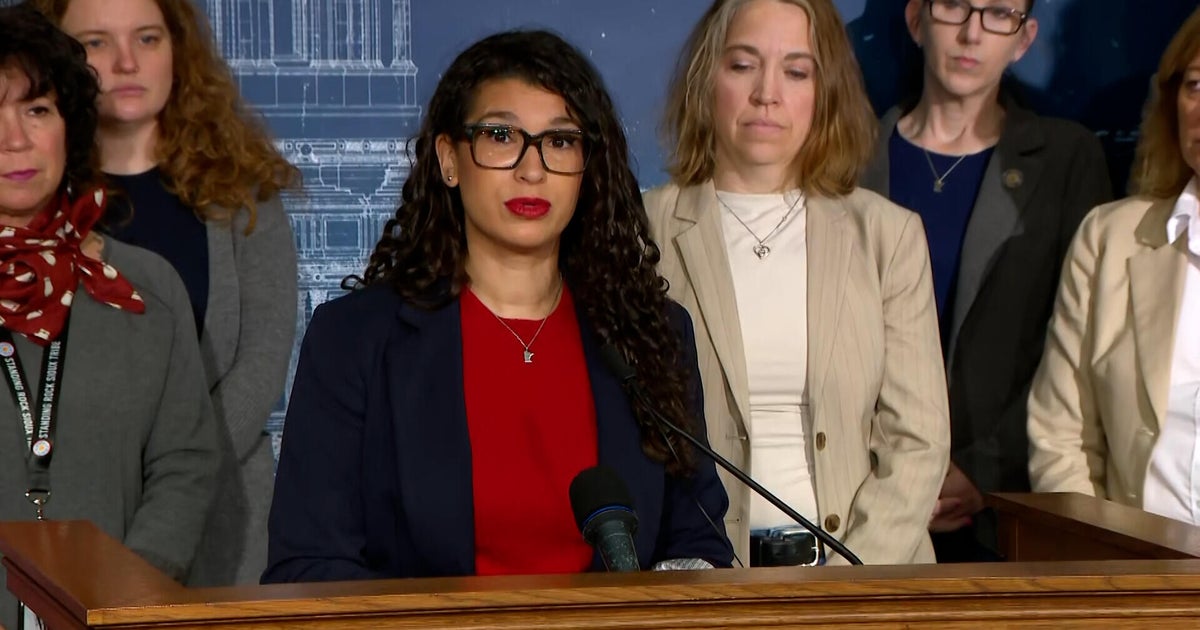Senate Republicans to propose counteroffer on infrastructure closer to $1 trillion
Republican senators plan to announce a new counteroffer on infrastructure spending on Thursday, after the White House last week unveiled a slimmed-down alternative to President Biden's original massive proposal.
Their new offer comes in at around $1 trillion, which Republicans say is the minimum amount that Mr. Biden has said he'd accept for an infrastructure bill, and they propose paying for it by repurposing unused funds from previously approved coronavirus relief measures. But a separate bipartisan group of senators is also working on another proposal as negotiations continue.
GOP Senator Shelley Moore Capito, of West Virginia, who has spearheaded infrastructure negotiations, told reporters that Republicans felt that Mr. Biden would support a $1 trillion bill over eight years after meeting with him at the White House earlier this month.
"He basically left us with the impression that he understood that we did not — I'm not saying he agreed with with this, but that he understood that going after the 2017 tax cut was a non starter for us," Capito said on Wednesday. "He understood that we didn't want human infrastructure in there. He didn't discount the value of it, and neither did we."
Mr. Biden proposed paying for a large infrastructure bill by raising the corporate tax rate to 28%, which Republicans oppose. The 2017 tax cuts bill signed by former President Trump lowered the corporate tax rate to 21%.
The White House proposed a $1.7 trillion counteroffer on infrastructure to Senate Republicans last week, roughly half a billion dollars less than Mr. Biden's initial $2.3 trillion proposal. But Republicans say the most recent offer still includes provisions that they don't consider to be related to "traditional" infrastructure needs. Mr. Biden's new proposal still included provisions on construction of veterans hospitals and on strengthening home care.
"The frustration for me is, we still haven't narrowed the scope, so I really think the scope should be driving the numbers," Capito said about what she believed would be an appropriate price tag for the infrastructure bill.
Senator Roger Wicker, a Republican from Mississippi, told reporters on Tuesday that the new counteroffer would be close to the president's request.
"We're going to hit a figure very close to what the president said he would accept, and it will end up being the most substantial infrastructure bill ever enacted by the federal government. And if the president gets to make the decision, he will accept it," Wicker said, an allusion to accusations by some Republicans that Mr. Biden's staff is less willing to negotiate than the president is.
Wicker said there would be "hardly anything on user fees" to pay for the bill, a method for covering the cost which Mr. Biden has largely rejected. The president has promised he would not raise taxes for any American making under $400,000 per year.
"This is going to be a very good offer, and it moves in his direction," Wicker said. The Republicans had previously proposed an initial counteroffer of $568 billion, which many Democrats have dismissed as too small.
Meanwhile, GOP Senator Mitt Romney said that a separate bipartisan group of eight senators was also working on an infrastructure proposal. Romney told reporters on Wednesday that Capito's group was the "front burner" of negotiations, and that his group was on the "back burner." His group is considering a proposal of "not quite a trillion."
"We're pretty close on the physical infrastructure with the White House figures," Romney said. "By the way, so is, I think Shelley Moore Capito's team is very close to the White House in that regard."
Some Democrats are frustrated by the willingness of the White House to make concessions to Republicans. Progressives could rebel if the White House settles on a narrow package that focuses "traditional" infrastructure projects such as roads, bridges and highways. With the slimmest of majorities in both houses of Congress, Mr. Biden cannot afford to lose any support from his party.
But others think Democrats should give Republicans a bit more time to contribute to negotiations.
"I think we might want to let this play out a little more," Democratic Senator Tom Carper told reporters on Wednesday.
Senate Majority Leader Chuck Schumer indicated on Tuesday that, regardless of whether Republicans and Democrats come to an agreement, the Senate will move forward with infrastructure legislation in July.
"The bottom line is very simple: that it has always been our plan, regardless of the vehicle, to work on an infrastructure bill in July," Schumer said in a press conference.
Mr. Biden has also proposed a $1.8-trillion American Families Plan, which is focused on "human" infrastructure, with provisions on health care, child care and education. This proposal has also been received with skepticism by Republicans.



